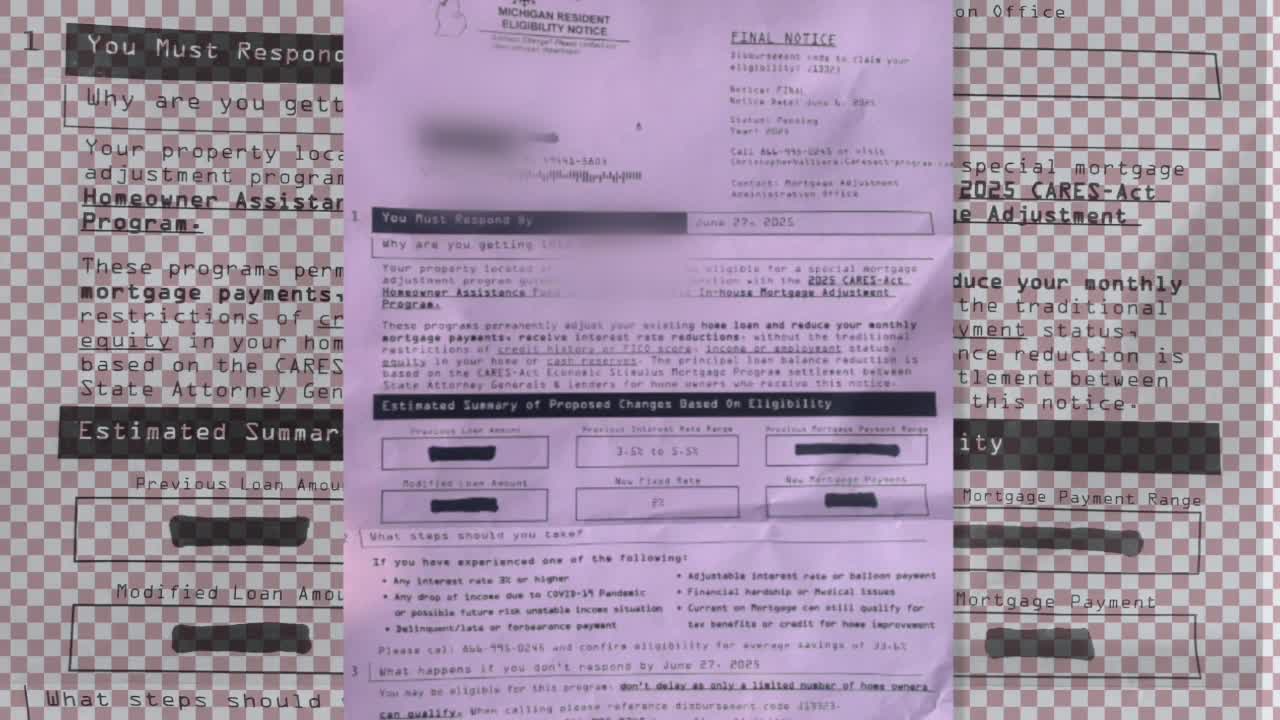A woman from Norton Shores is alerting fellow Michiganders to a scam that falsely promises to reduce mortgage payments.
Noel, who preferred not to appear on camera, shared her experience to caution others about a fraudulent letter she received earlier this month.
Noel was initially convinced the correspondence came from her bank. The letter offered an enticing opportunity for a "special mortgage adjustment" through the so-called "2025 CARES Act Homeowners Care Assistance."
The scam was convincing, featuring sensitive details such as her past loan amount, interest, and payment range. However, the offer was a complete scam.

Nakia Mills from the Michigan Better Business Bureau (BBB) highlighted the ease with which scammers can access personal data. "We have to be careful of is sometimes we don't realize how much of our personal identifiable information we're sharing online," Mills said. "Maybe you mistakenly clicked on a link that wasn't real, and maybe you answered some questions there, filled out a form. So, it's sadly, many ways that these scammers can get that information, and then once they put it on the dark web, it's just out there for all the criminals to have access to it."
Initially unaware of the deception, Noel communicated with the scammers via text messages and calls. She was asked to provide documents like a mortgage statement, utility bill, and pay stub.
Mills advised caution when receiving text messages purporting to be from legitimate agencies or mortgage lenders, noting that such communication should raise a red flag as professional companies typically don't initiate contact in this manner. Furthermore, scammers often impose time constraints to prompt quick action, a tactic not always used but common in such scams.
Suspicions arose when Noel realized the offer seemed too good to be true. She contacted the U.S. Department of Housing and Urban Development, where she was informed of the scam, including that there was no "2025 CARES Act Fund", citing an ending to Covid-19 relief money the state received.
The BBB recommends verifying any suspicious correspondence received, usually starting with a call or letter prompting recipients to research before proceeding.
While this is the first report the BBB has received from a Michigan resident concerning this scam, similar cases have surfaced nationwide. The BBB encourages individuals to report their experiences to its Scam Tracker.
For more information, visit the BBB website or contact them directly.
Follow FOX 17: Facebook - X (formerly Twitter) - Instagram - YouTube





